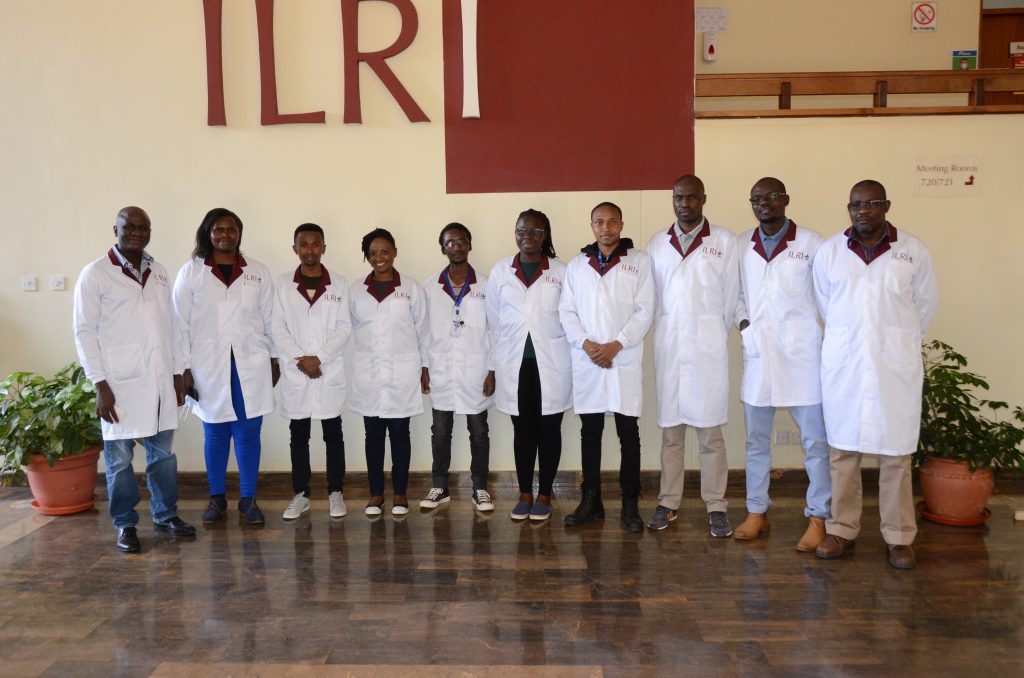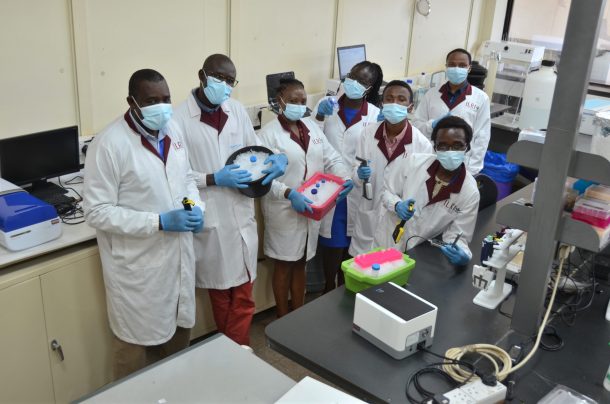In a major new publication last week in Science magazine, a ‘dream team of 300 African scientists, including a group from the International Livestock Research Institute (ILRI) in Kenya, described the introduction and spread of the SARS-CoV-2 variants in African countries as it unfolded in real-time.
This was the largest consortium ever of African scientists and public health institutions working together to support a data-driven COVID-19 response in Africa.
“ILRI is delighted to have partnered with such an impressive group of scientists,” said ILRI senior scientist Dr. Samuel Oyola, a specialist in genomics and molecular biology. Dr. Oyola holds a Ph.D. in Molecular and Cellular Biology from the University of Cambridge, UK.
The genomics lab at ILRI is one of the three centers of excellence for genomic surveillance recognized and appointed by the African Centres for Disease Control (CDC).
The collaboration was led by two labs that set up the network for genomics surveillance in South Africa, the Centre for Epidemic Response and Innovation at Stellenbosch University and KRISP, the Kwazulu-Natal Research Innovation and Sequencing Platform KRISP at the University of KwaZulu-Natal, in close coordination with the Africa CDC, the World Health Office-Africa (WHO AFRO) and 300 other institutions across the continent.

Team of Kenyan Scientists who Kept Tabs on COVID-19 Spread in Africa led by the chief scientist, Dr. Samuel Oyola
The paper is titled ‘The evolving SARS-CoV-2 epidemic in Africa: Insights from rapidly expanding genomic surveillance.’ Dr. Oyola and his team’s contribution was testing and analyzing the SARS-CoV-2 genome by sequencing using modern high throughput genomic technologies.
“The sequencing data has helped to track SARS-CoV-2 variants circulating in Kenya and the continent thereby helping the public health officials to monitor transmission dynamics and develop informed measures to control the spread of the virus in real-time,” he says.
Investment in Africa over the past year with regards to SARS-CoV-2 genotyping has led to a massive increase in the number of sequences, exceeding 100,000 genomes generated to track the pandemic on the continent.
The scientists’ results show an increase in the number of African countries able to sequence within their own borders, coupled with a decrease in sequencing turnaround time. But they warn that sustained investment for genomic surveillance in Africa is needed as the virus continues to evolve, particularly in the low vaccination landscape. These investments are very crucial for preparedness and response to future pathogen outbreaks.
The publication highlights the fact that sustained investment for diagnostics and genomic surveillance in Africa was needed to not only help combat SARS-CoV-2 on the continent but establish a platform to address the emerging, re-emerging, endemic infectious disease threats, such as Ebola, HIV/AIDS, Tuberculosis and Malaria, said Yenew Kebede, Head Division of Laboratory Systems and Networks at the Africa CDC Vaccine development. ‘These investments are crucial for pandemic preparedness and response and will serve the health of the continent well into the 21st century.’
But the publication also showed—at least by implication—how the international response has failed (and continues to fail) some of the world’s poorest countries. The study shows, for example, that while most introductions of COVID-19 variants in Africa were seeded from viral lineages in Europe, Africa was often penalized with travel bans by the very countries that had introduced the virus to Africa.
‘There are many lessons to learn from this work,’ said Dr. Oyola, ‘not all of them happy.’ He added: ‘But the swift increase in genetic sequencing capacity on the continent is clearly a major positive development. ILRI is playing a critical role in developing the capacity for pandemic preparedness and response in Africa through our advanced molecular and genomic technologies.’

